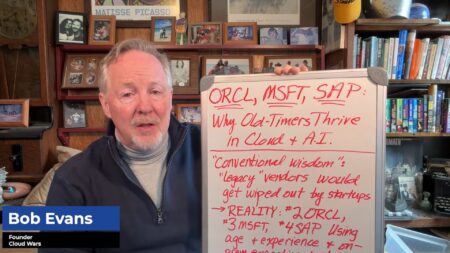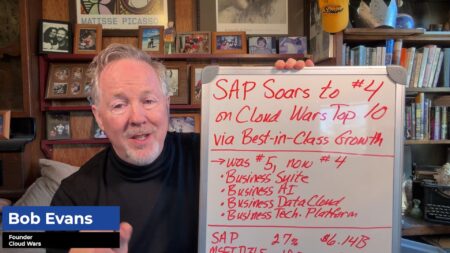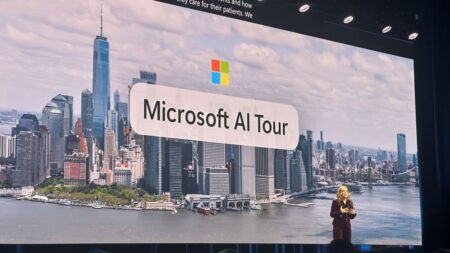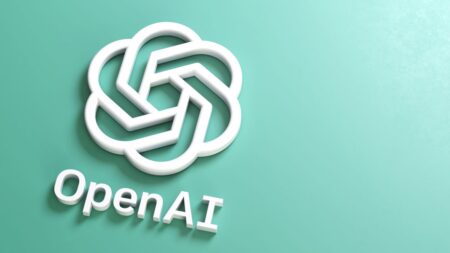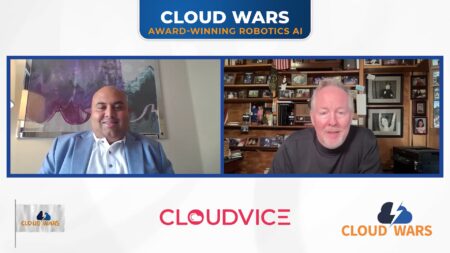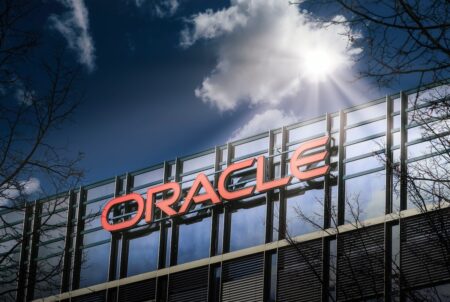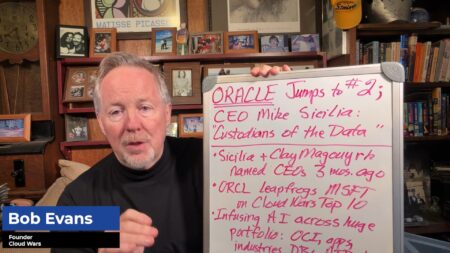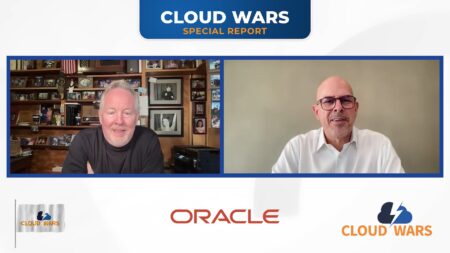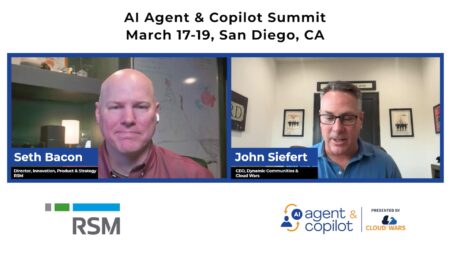Oracle, SAP, and Microsoft use decades of experience to lead cloud-driven business transformations.
featured
SAP’s surge to #4 in the Cloud Wars Top 10 reflects breakout growth, a reinvented cloud-first portfolio, and booming customer demand for apps, AI, data, and agents.
Microsoft’s Dewain Robinson shares expectations for the 2026 AI Agent & Copilot Summit and notes how AI has moved from its place in the hype cycle to providing actual business value.
SAP’s cloud-first pivot delivers record performance, with growth nearly double that of Workday and triple that of Salesforce.
BNY, Boston Scientific detail AI initiatives including the value of AI agents as digital employees and approaches to sensitive data protection. They spoke at the Microsoft AI Tour.
The U.S. trails in global GenAI usage despite its AI development strength, Microsoft reports.
In its Spring ’26 release, Salesforce enhances Data 360, introduces intelligent agent tools, and creates a unified seller experience.
Microsoft’s NYC AI Tour keynote explored how businesses can move beyond efficiency to drive creativity and growth through agent-first workflows.
Despite record growth, Microsoft lost its #1 cloud ranking due to cybersecurity failures exposed by a federal watchdog report and internal leadership admissions.
Accounts Payable (AP) has emerged as a prime candidate for finance-grade AI. Discover how Truvio’s ERP-native intelligence is reshaping automation inside Dynamics 365.
Microsoft drops from #1 to #3 in the Cloud Wars Top 10 as deep cybersecurity failures outweigh record cloud revenue, reshaping the rankings.
OpenAI launches ChatGPT Health, a secure, expert-reviewed platform offering users reliable AI support for health queries, prioritizing safety, privacy, and transparency.
AI reaches its full potential when insight, scale, verification, and execution converge into autonomous systems that deliver measurable real-world outcomes.
A grounded look at how data, architecture, and governance turn AI from a demo into a dependable business capability.
Claude’s integration into Microsoft Foundry allows healthcare organizations to utilize domain-specific tools to streamline operations and improve patient outcomes.
Mike Sicilia shares details on the culture and mindset that has boosted Oracle to the #2 spot on the Cloud Wars Top 10 rankings, as highlighted in this recap.
Oracle’s rise to #2 in the Cloud Wars Top 10 rankings is driven by AI innovation, cloud growth, and strong execution from leadership.
Oracle’s AI-first cloud strategy is accelerating customer value, driving rapid growth, and reshaping how enterprises deploy intelligence at scale.
From checkout functionality integrated into Copilot to personalized shopping to AI automation in store operations, Microsoft delivers a range of AI tools that modernize online retail.
Siefert and Bacon discuss how the AI Agent & Copilot Summit has evolved from introducing AI concepts to focusing on real-world, production-ready use cases that deliver measurable business value across industries.


